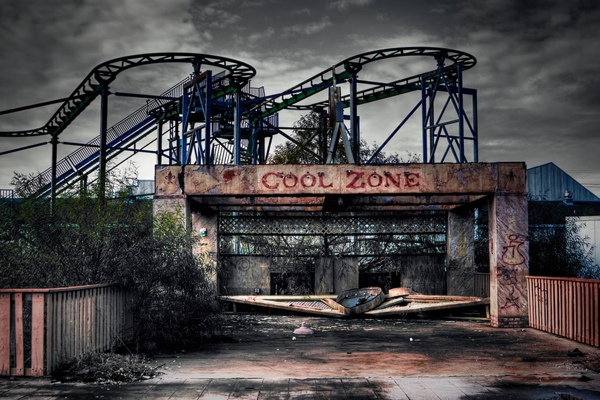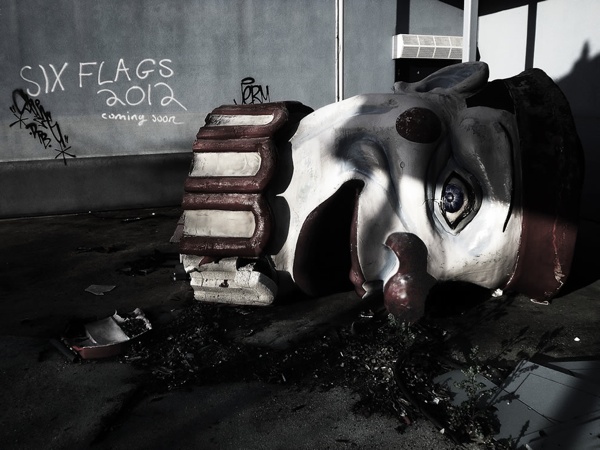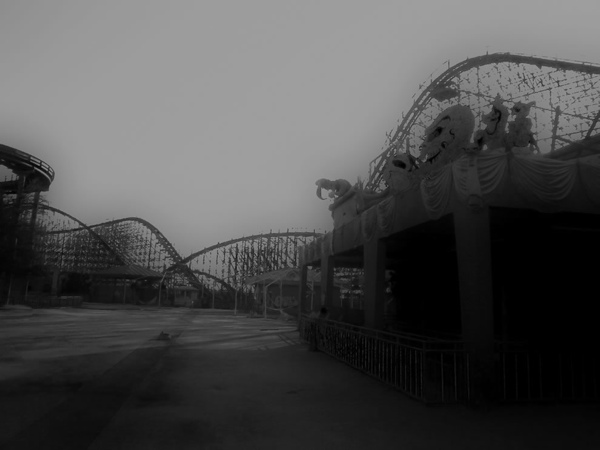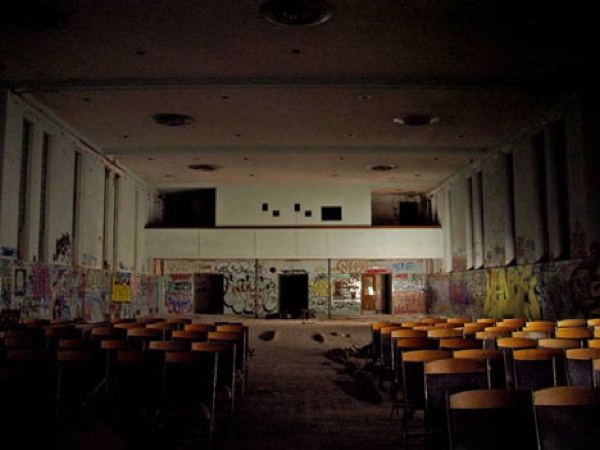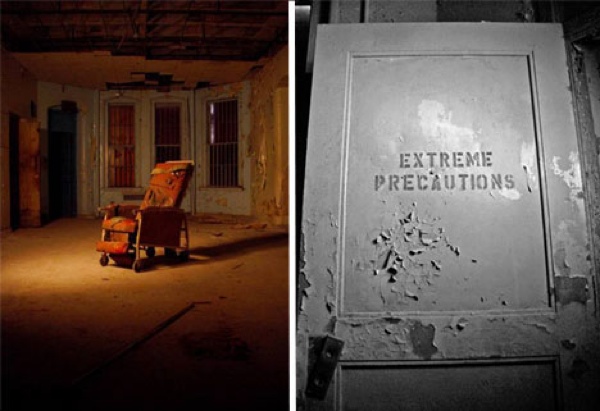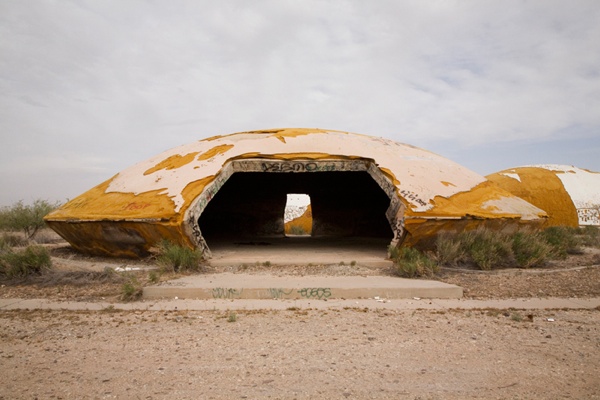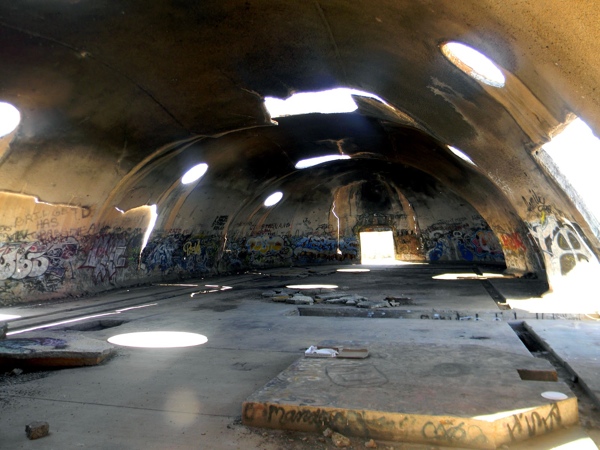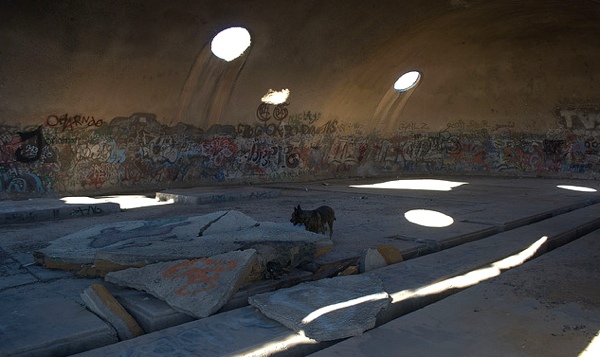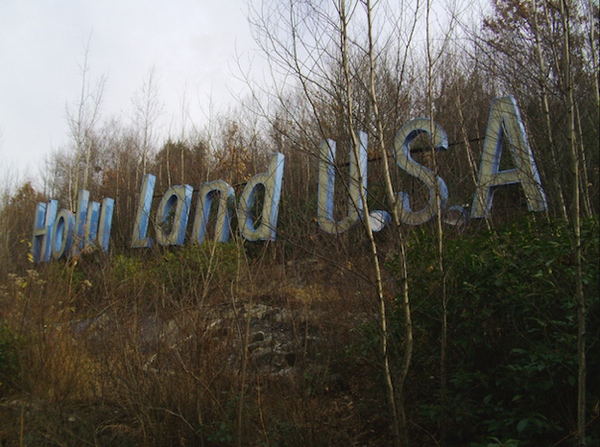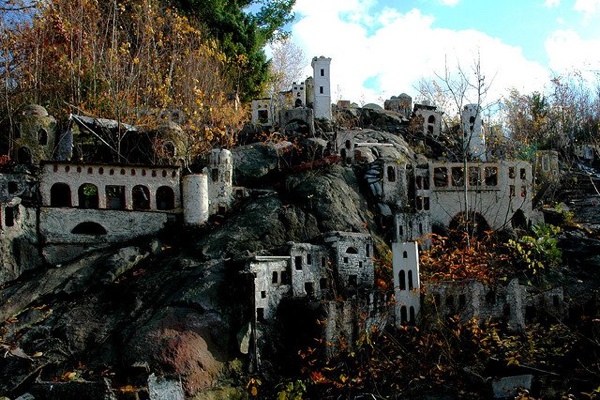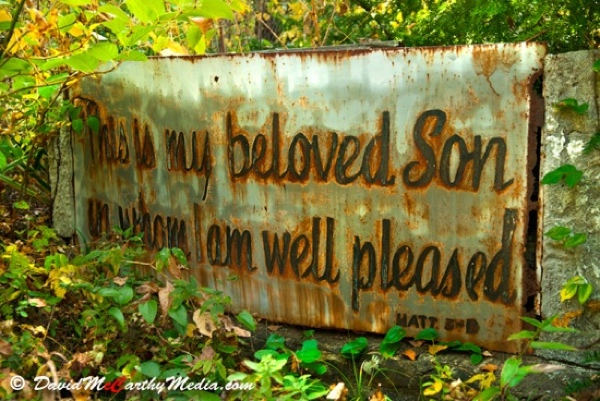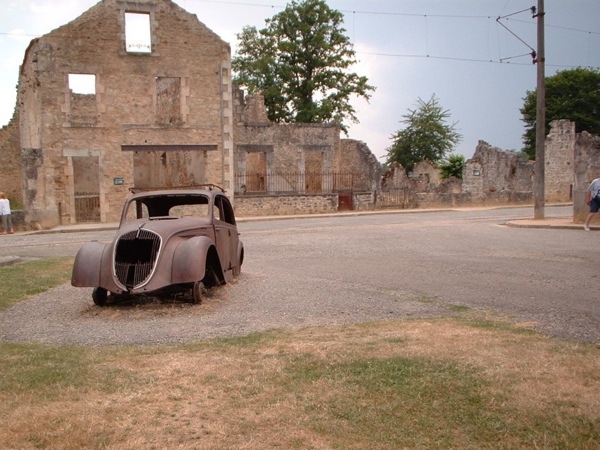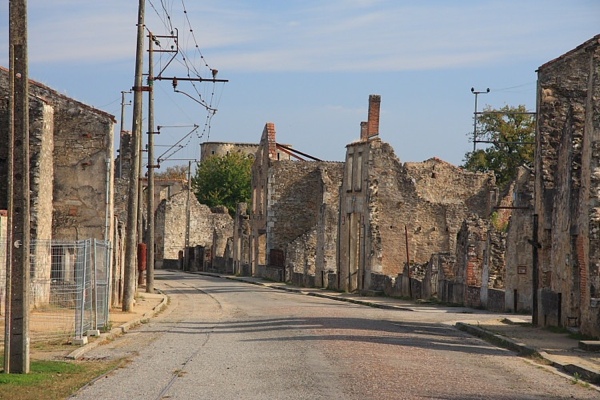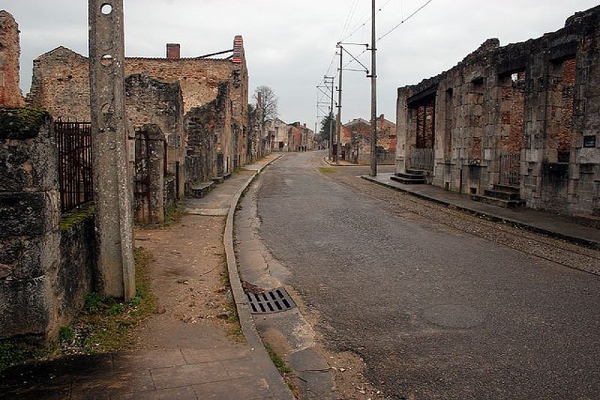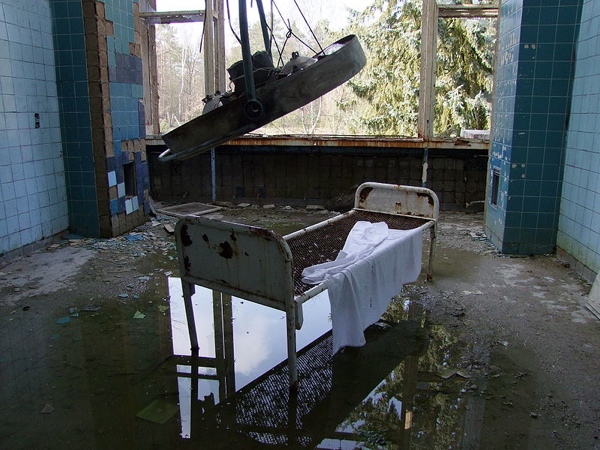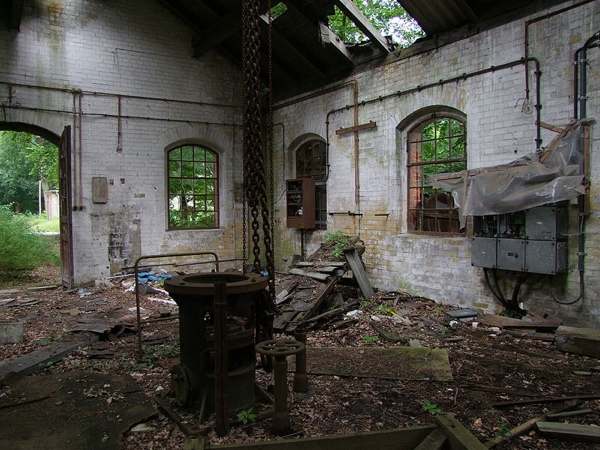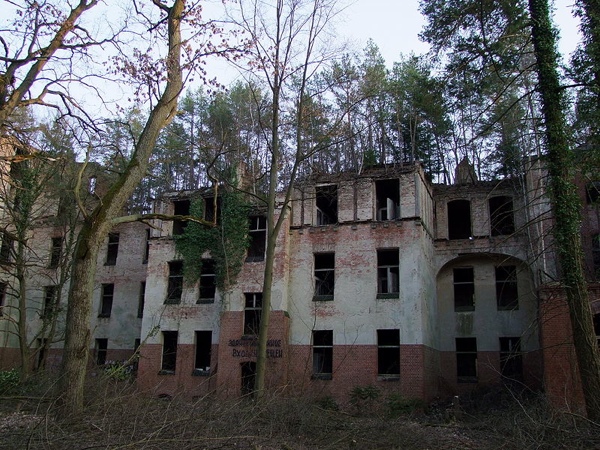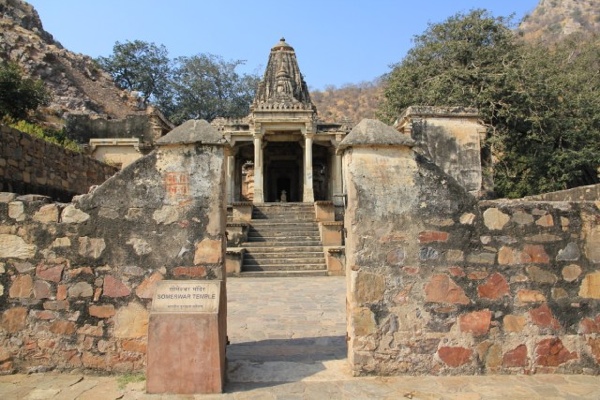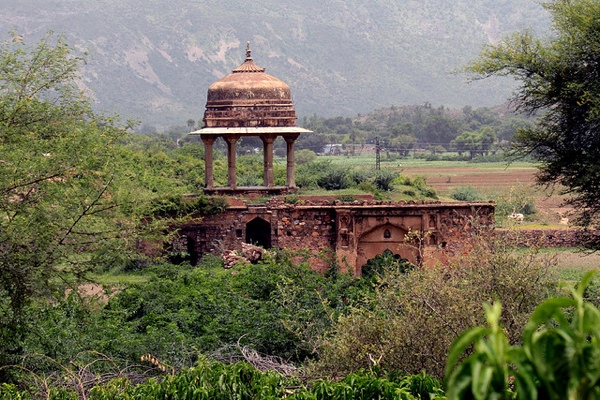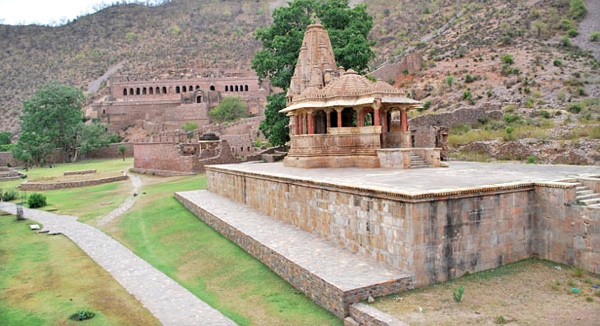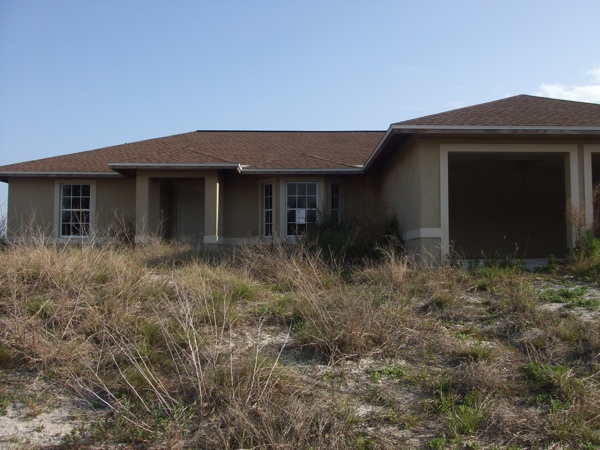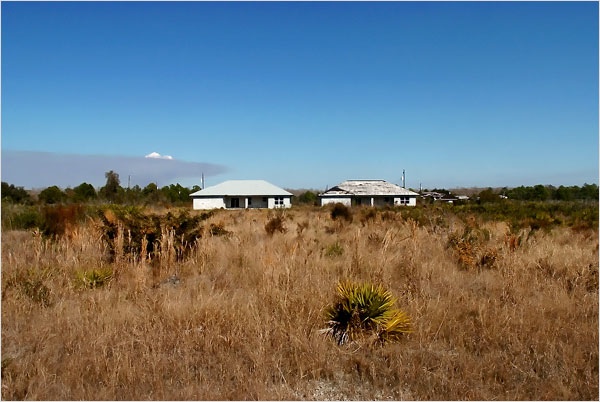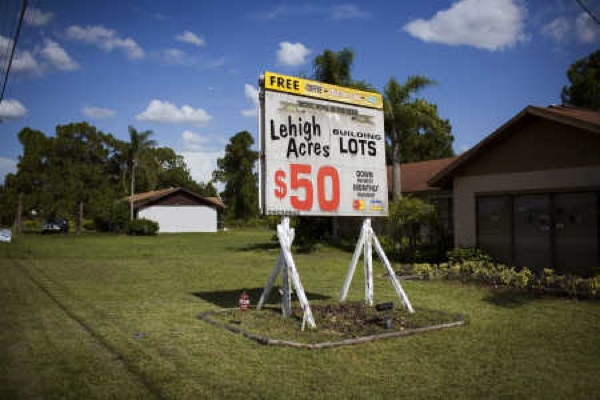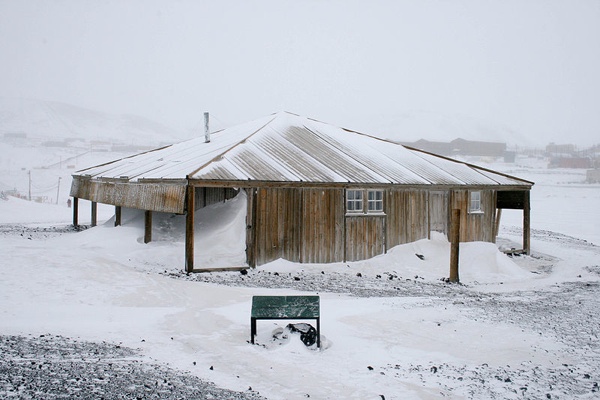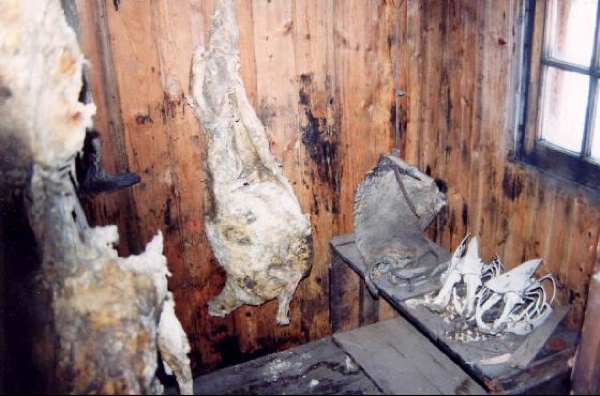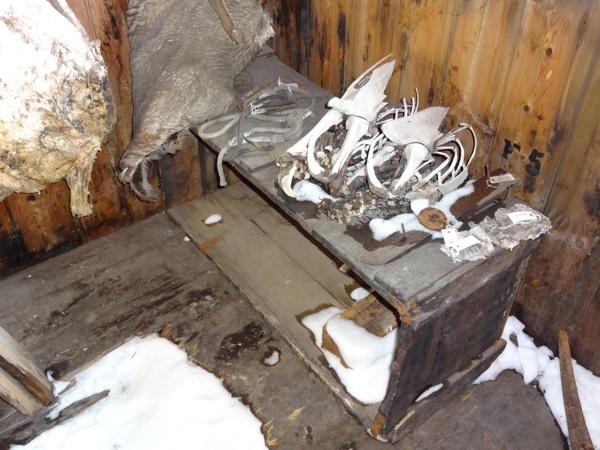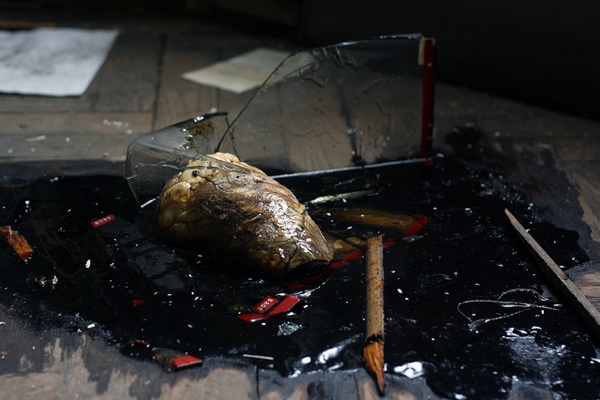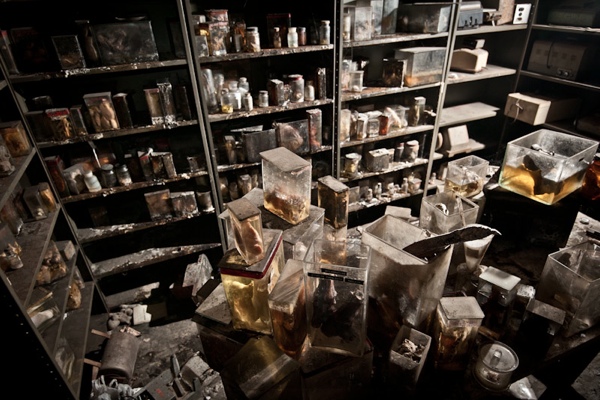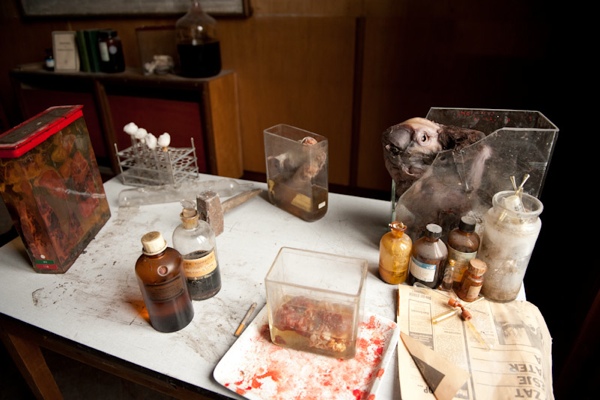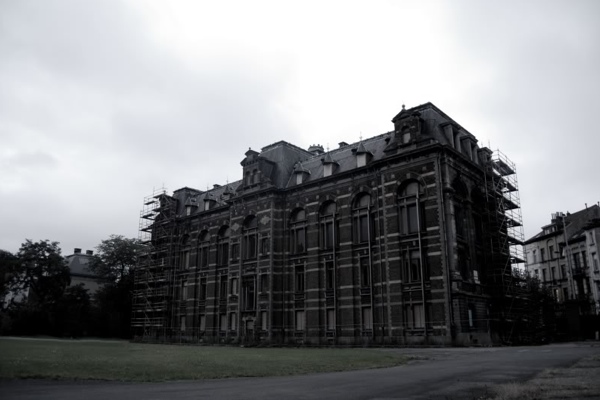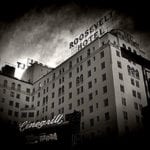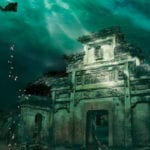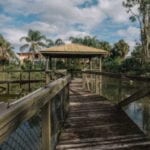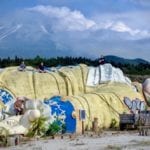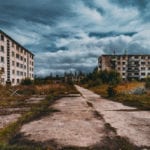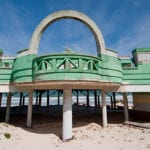The places on this list are the kinds of places you see people obliviously waltzing into in horror movies, knowing full well that most or all of them will never make it out alive. But these are no movie sets, and if you were to find yourself in one of these places, you’d better hope that a terminal case of the willies isn’t the only thing that could potentially spell your doom.
The New Orleans amusement park Jazzland opened in 2000, and the lease was purchased by Six Flags in 2002. The park was upgraded a year later and renamed Six Flags New Orleans, with a Mardi Gras-themed area and a respectable collection of rides and coasters. In 2005, a storm struck the area—a big one. You may have heard about it. Long story short, the wreck of this once merry place has sat deserted for many, many years since Katrina struck. It is now owned by the city with tentative plans to put a mall in its place—but if you’re willing to risk an arrest for trespassing, it can serve as a hell of a creepy urban exploration outing. Just ask the guys who took these pictures.
Danvers State Hospital in Massachusetts is old enough to have been variously known as the State Lunatic Hospital, Danvers Lunatic Asylum, and other such lovely monikers. In its most crowded period during the 1920s and ’30s, there were controversies over its rumored use of shock therapy, drugs and frontal lobotomies—in fact, it may have been the birthplace of that procedure. Since its closure in 1992 it has fallen into a state of severe creepiness. And yes, disrepair. It was the setting for the excellent 2001 horror film Session 9, and did a lot of the heavy lifting in generating a truly dreadful atmosphere. While there have been efforts to renovate the area, the spirits have not been kind to those efforts. In 2006, some structures were demolished and apartment buildings put in their place; in April 2007, all of those buildings and several construction trailers went up in flames. Any efforts at renovation since then have largely (and understandably) stalled.
Most locals don’t know who built these giant, concrete, saucer-shaped domes out in the middle of the Arizona desert, or why. While the truth is pretty mundane, visitors to the site are known to come down with a case of the willies in about four seconds—the extreme neglect, oddness of the architecture and (they say) the “vibe” of the place as the sun goes down combine to give one a healthy sense of unease. While these may look like ’50s era flying saucer replicas, they were in fact built in 1982 by an electronics company; their weird design was supposed to assist with insulation and be cheap to construct. The company failed in 1983, and contaminated groundwater was found at the site shortly thereafter, with cleanup not exactly a priority for the now bank-owned properties. New owners acquired the site in 2006, and there it still sits—spooky, deserted and forever raising the question “who paid money for these?”
Holy Land USA was once an 18 acre (7.2 hectares) theme park in Waterbury, Connecticut, that at its peak in the 1960s and ’70s saw upwards of 40,000 visitors per year. It was closed for renovation in 1984; its owner, John Greco, died in 1986, and nobody has been sure what to do with it since. The property has been watched over by a group of nuns in the intervening decades, while it deteriorates more and more, and just gets more and more disturbing. As if the crumbling statues, dark and still structures and obvious vandalism don’t get your “let’s get the hell out of here” meter in the red, there’s also the fact that a teenager was murdered on these deserted grounds in 2010. While police reports have shown instances of trespassing dropping, that really just means there are fewer people around, making the place even more isolated and terrifying.
Just down the road from the village of Oradour-sur-Glane, France, there lies the original village of Oradour-sur-Glane—or what’s left of it. On June 10th, 1944, the village had the extreme bad fortune of being confused with nearby Oradour-sur-Vayres by a Nazi Panzer unit, which erroneously believed that a Waffen SS officer was being held by the villagers there. The Nazis massacred 642 men, women and children with incendiary devices and machine gun fire before the mistake was cleared up, which was pretty much the entire population of the town and a few guys who happened to be passing through when the Germans came. French President Charles DeGaulle ordered the town rebuilt, and it was—but he also ordered that the ruins of the old town should stay as a reminder, and they did. A plaque roughly translating to “so as not to forget” is the only modern addition to this town, which we honestly don’t think we ever want to come within a hundred miles of.
This former sanatorium southwest of Berlin was built to deal with an explosion of tuberculosis in the late 1800s, and expanded twice throughout the next several decades. It was put to use as a military hospital during both World Wars (Adolf Hitler recuperated from a leg wound there, as a young soldier in 1915), and has doubtless seen its share of death, despair, and craziness. The hospital was under the control of the Soviet Union until that country ceased to exist in the early ’90s, and has stood empty since. Half-hearted attempts at restoration have played tog-of-war with plans to demolish the site, as over the years its creepiness factor rises steadily with its level of decay. Urban explorers love this place as well, and it’s also been used for as a set for the film The Pianist, and a Rammstein music video, of course.
While the abandoned town of Bhangarh in the state of Rajasthan, India, has become something of a tourist attraction, you’ll notice there are no photos of it at night. That is because setting foot in the place at night is strictly forbidden, and apparently the Indian government is pretty serious about it. Even though government rules state that the Archaeological Survey of India must have an office at every historical site—and this is one—there is no ASI office here. Tourists are let in during the daytime grudgingly, but the general attitude of the government seems to be, “this is a great place to stay the hell away from.” Why? Legend goes that a heartbroken magician cursed the place in the 16th century after being rejected by the kingdom’s princess, and all who lived within it with death- without the possibility of rebirth, which is kind of part and parcel of the Hindu religion. So people living here are cursed not just with death, but with super-permanent-we’re-serious-game-over-for-you death. A prominent sign outside the little town reads, “Entering the borders of Bhangarh after sunset is strictly prohibited,” and while they do not explicitly promise paranormal activity, we think following the rule is probably a good idea.
The Story of Lehigh Acres is sad and uniquely American. In the 1950s, Businessmen Gerald Gould and Lee Ratner (who got rich selling D-Con rat poison) divided up a huge stretch of land in southern Florida, owned by Ratner, into tiny half-acre parcels that they then sold to Northerners for low, low prices. At ten bucks down and ten a month, it seemed like a bargain; however, there was no infrastructure in place (schools, roads, running water) and very few houses were built. Many lots were resold when checks stopped coming in, and the place was still pretty barren by the ’80s. When the real estate boom of the late ’90s began, however, hundreds of cheap, quick houses started flying up on those old lots that baby boomers had inherited from their gullible parents. Far, far too many houses to actually meet the demand to live there. And when the real estate bubble popped, the suburbs of Lehigh Acres became a veritable ghost town. There are many blocks with only one or two occupied houses, many with none at all. Plants, flowers and alligators rule over this vast, empty suburban skeleton; one can easily imagine that they are in an alternate universe where the Cold War turned out a bit differently.
Discovery Hut is located in Antarctica close to McMurdo Sound, which—as we have previously pointed out—is a really cool looking place that you really do not ever want to visit. It was built by the party of explorer Robert Falcon Scott during the Discovery Expedition of 1901 to 1904, which was the second time anyone had ever tried to explore the region, and the first time in sixty years. If the hut looks like it’s in pretty good shape for being that old, it may be because it is pretty much frozen solid. Inside this incredibly drafty little hut that sits in one of the coldest regions on the planet, you’ll find functionally useless equipment, ninety-plus year old stores of seal carcasses, meat and blubber, snow, ice and despair. The hut has served no real purpose for decades upon decades, and probably would have been completely lost to decay and neglect long ago if it didn’t sit in the middle of a deep freeze.
The last remaining un-renovated building out of the nineteen that used to make up a veterinary complex in Anderlecht, Brussels has stood deserted since the ’90s. We’re thinking it remains un-renovated because crews are just straight up terrified to even go near this place. Its deserted, crumbling halls lead to rooms that are each full of more horrifying stuff than the last. Old, hand-blown bottles of questionable fluids, syringes and other old, rusty medical equipment, and that’s just the beginning! The main attractions are the animal heads and brains and assorted parts stuffed into jars throughout the building, which has come to appropriately be called the “Horror Labs.” Some parts are recognizable, some are not. Some are jammed together into larger jars. Some are sewn together, and we absolutely do not want to know why. This is allegedly a fairly popular urban exploration destination, although anyone who wants to take a day trip to the Horror Labs is made of sterner stuff than we are. In fact, we think it’s time to get started on our list of the 10 Cutest Kittens Ever Photographed, so we can get some sleep tonight. Floorwalker’s blog and Twitter are groovy, man, groovy.
